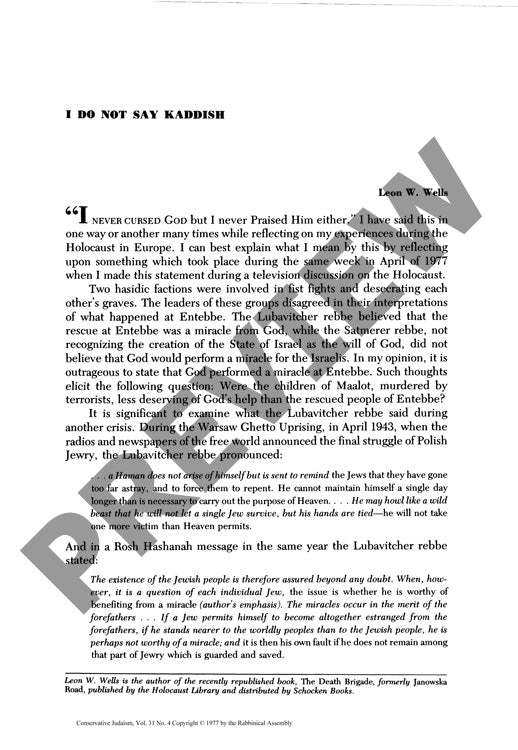I Do Not Say Kaddish
Couldn't load pickup availability
When religious leaders proclaimed the 1976 Entebbe rescue a divine miracle while remaining silent about the Warsaw Ghetto's destruction, they exposed a profound theological contradiction that Holocaust survivors like myself could not ignore. Drawing from my direct experiences of mass killings in Lvov, Galicia, and the loss of my family members, I challenge orthodox Jewish interpretations that attribute Holocaust events to divine will or intervention. Through autobiographical narrative and analysis of rabbinical pronouncements—particularly the Lubavitcher rebbe's statements—I examine why some Jewish victims supposedly merited miraculous salvation while millions of others, including innocent children, perished. The investigation disputes commonly accepted accounts of victims reciting prayers before death, arguing that such romanticized narratives serve primarily to comfort contemporary believers rather than document historical truth. Personal testimony, comparative analysis of religious proclamations, and critique of post-Holocaust religious narratives reveal that theological neutrality—neither cursing nor praising God—offers a more authentic response to incomprehensible suffering than traditional religious explanations that either blame victims or glorify divine intervention. Post-Holocaust theological interpretations, in their attempt to preserve religious faith, often distort historical reality and inadvertently dishonor the memory of those who perished.

More Information
-
Physical Description
-
Publication Information
Published 1977
ISBN
-
Publication Credits
Leon Wells

